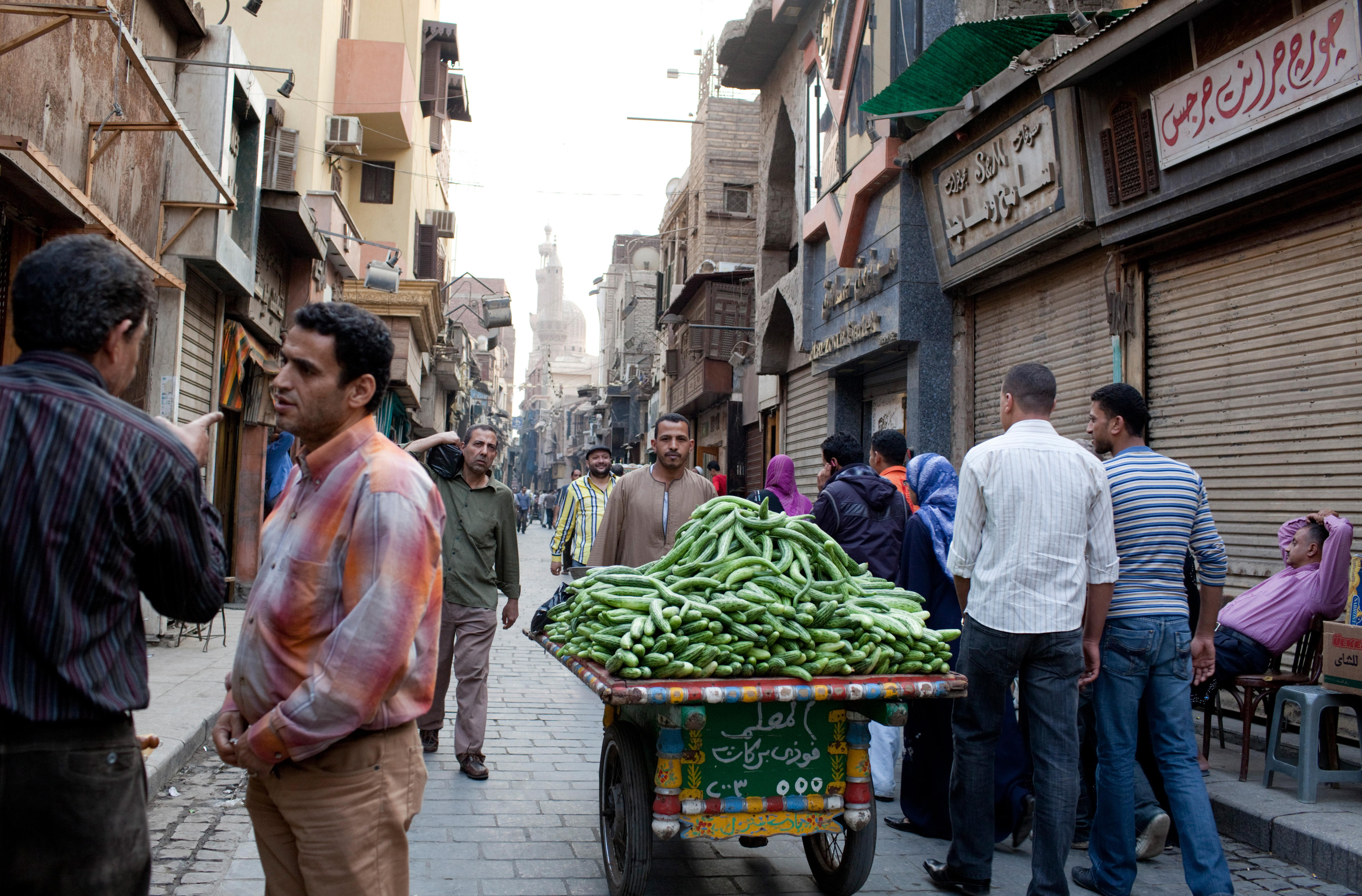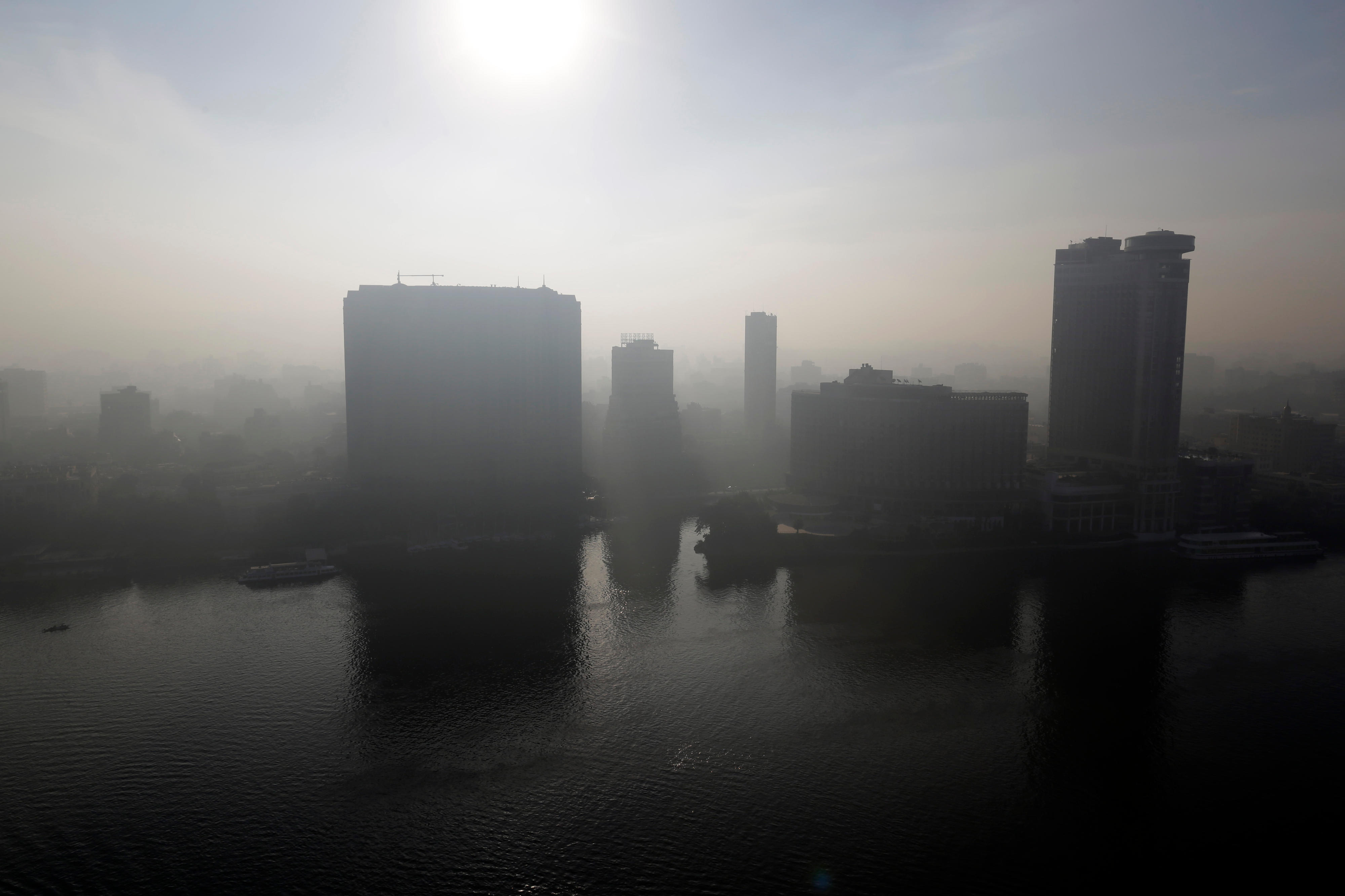Street scene in the old town of Cairo
Copyright© Ute Grabowsky/photothek.net
Social situation Competition for land and water
Most people's incomes are generated in the informal sector. The majority of workers in this sector have no entitlements to public benefits and, for example, do not receive the minimum wage (7,000 Egyptian pound since July 2025).
The social situation is further exacerbated by high population growth (close to 1.7 per cent in 2024). In the past 30 years, the population of Egypt has almost doubled and stood at roughly 116 million in 2024. Almost one third of the population is under the age of 15. In many families, children have to contribute to the household income. Many underage children are regularly working in the construction sector, in mining, in agriculture or in domestic service.
Egypt currently ranks 100th out of 193 countries on the Human Development Index (HDI).
Situation of women
The promotion of gender equality is one of the Egyptian government's stated objectives. The proportion of women in politics and administration has increased significantly in recent years. In the day-to-day life of society, however, the division of roles continues. For example, there are very few women in leadership positions in business. The global employment rate of women (roughly 16.4 percent in the first quarter of 2025) is significantly higher than for men (approximately 3.6 per cent). Out of 148 countries on the 2025 Global Gender Gap Report, Egypt ranks 140th as regards the economic participation of women and 145th for expected income. According to the report, women in Egypt receive on average less than one quarter of the wages men are paid.
Sexual harassment and violence against women are widespread in Egypt. Female genital mutilation, which has been banned since 2008, is still practised, particularly in rural areas.
Poor living conditions in metropolitan areas
Smog in Cairo
Some 95 per cent of the Egyptian population lives along the Nile Valley and in the Nile Delta on about 4 per cent of the country's land surface. This means that these regions are some of the most densely populated in the world. In the metropolitan areas, agriculture, industry and human communities compete for usable land and particularly for scarce water resources.
The extremely high population density and the increasing industrialisation of the region have brought huge environmental problems in their wake. In metropolitan areas, worsening air and water pollution negatively impacts on local residents' living conditions. There is also a lack of affordable housing for poor people in these areas. Illegal settlements are proliferating in an uncontrolled manner without an appropriate social or technical infrastructure.
The government is responding by upgrading the slums and building a large number of new towns. The most ambitious project is the construction of a new administrative capital around 50 kilometres east of Cairo. However, the upgrading of run-down residential districts is often accompanied by forced clearances and forced resettlement, and many of the new housing areas remain uninhabited as they are not aligned with people's needs or financial capacities.
In summer 2021, a large-scale development initiative was launched for rural regions (Haya Karima / decent life). It encompasses the expansion of infrastructure (irrigation, wastewater, roads, energy supply, waste recycling), improvements in education and health care, housing development and support for agriculture.
As at: 18/07/2025

